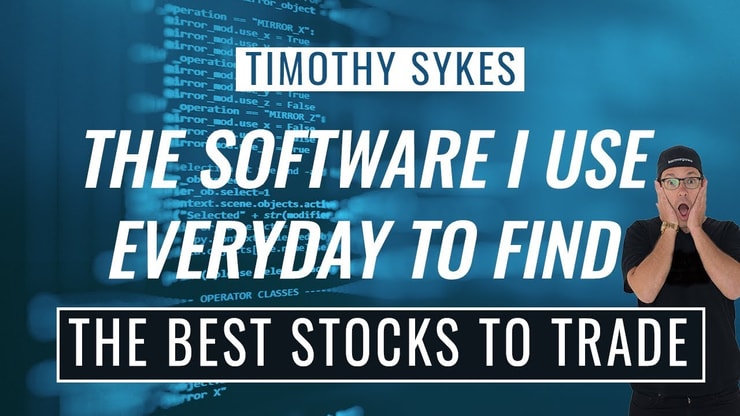Here’s the short answer — no, Robinhood isn’t available in Canada. You can’t download it, you can’t trade with it, and there’s no official launch date. It’s a U.S.-only platform.
But that doesn’t mean Canadian traders are stuck. There are solid alternatives that offer commission-free trading, strong research tools, and account flexibility — without the regulatory headache.
Read this article because it gives you the lowdown on why Robinhood isn’t available in Canada and what Canadian-friendly alternatives you can opt for.
- I’ll answer the following questions:
- Can you use Robinhood in Canada?
- What is Robinhood’s primary revenue source?
- Why did Robinhood gain popularity in the U.S.?
- What are the regulatory hurdles for Robinhood in Canada?
- What trading platforms are available for Canadians?
- How do Canadian trading platforms differ from Robinhood?
- What are the pros and cons of using Robinhood vs. Canadian platforms?
- Is there potential for Robinhood to enter the Canadian market?
Still with me? Good. Now let’s dig into the details.
Table of Contents
- 1 What Is Robinhood?
- 2 Robinhood’s Availability in Canada
- 3 The Canadian Trading Landscape
- 4 Alternatives to Robinhood in Canada
- 5 Comparing Robinhood with Canadian Alternatives
- 6 The Future of Trading Platforms in Canada
- 7 Key Takeaways
- 8 Frequently Asked Questions (FAQs)
- 8.1 Why Is Robinhood Not in Canada?
- 8.2 Are There Any Platforms Exactly Like Robinhood in Canada?
- 8.3 What Should Canadians Consider When Choosing a Trading Platform?
- 8.4 Is There a Discount Broker Like Robinhood in Canada?
- 8.5 What Is the Minimum Amount Required to Open an Account?
- 8.6 Do I Need a Social Security Number to Trade Stocks Online in Canada?
- 8.7 How Accurate Is the Price Data on Online Trading Sites?
- 8.8 How Do I Find Reliable Reviews and Information About Brokers?
- 8.9 Are Apple Pay and Credit Cards Accepted for Deposits?
- 8.10 Who Is Baiju Bhatt and Is He Associated With Any Canadian Brokers?
What Is Robinhood?
Robinhood made a name for itself by eliminating trading commissions and targeting newer, mobile-first traders. It offers stocks, ETFs, options, and crypto in a clean, easy-to-use app. It’s not my platform of choice — and it’s not even an option if you’re in Canada — but it changed the way brokers think about accessibility and pricing.
Now many other brokers offer commission-free trading. Here’s what I’m looking for in a broker in 2025:
How Robinhood Operates and Makes Money
Robinhood isn’t free — it just feels that way. The company makes money through payment for order flow (PFOF), meaning they route your trades to market makers and get paid for it.
They also upsell users on Robinhood Gold, which includes margin trading and extended hours. Knowing how your broker makes money matters — because it influences how your orders are filled and how quickly they execute.
The Rise and Popularity of Robinhood in the U.S.
Robinhood exploded during the retail trading boom — it was simple, flashy, and had zero commissions. That combo attracted millions of new users, many of whom had never placed a trade before. It played a central role in the rise of meme stocks like GameStop and AMC.
(Then they pulled the plug, restricting trades in these meme stocks and stopping GameStop’s historic rally in its tracks.)
Too many people only now see what a scheme Robinhood is, I've warned for years https://t.co/0STjlYubGd & https://t.co/CuA8Bhsy7h & https://t.co/ehNjp7D71I as it's VERY twisted how Robinhood historically takes from the rich & gives to the poor, but with this broker it's opposite!
— Timothy Sykes (@timothysykes) January 28, 2021
But for all the access it gave, it also created a generation of traders with no real strategy — and no risk management.
Robinhood’s Availability in Canada

2025 Millionaire Media, LLCYou can stop looking for Robinhood in the Canadian App Store; it’s not there. Robinhood doesn’t extend its services north of the United States, so Canadians are out of the loop. That’s right, no Robinhood for your portfolio of shares, stocks, or bonds.
The platform is non-operational in Canada, partly due to regulatory hurdles and complexities around offering everything from equities to cryptocurrency and CFDs in the Great White North. When you’re sitting there looking to make quick trades with low commissions, Robinhood can be enticing. But remember, you won’t be using this app for your forex trades or buying bitcoin if you’ve got a Canadian bank account.
More Breaking News
- BigBear.ai Faces Legal Storm: What’s Next?
- Meiwu Technology: A New Chapter Unfolds?
- Unexpected Plunge in CCL: Buying Opportunity?
Is Robinhood Available for Canadians?
No, Robinhood is not available in Canada, and there’s no official date for its entry. Canadian law and FINRA regulation make it complex for Robinhood to simply cross borders.
The main reason? Regulation. Canada has its own financial watchdogs — like IIROC and provincial securities commissions — and they don’t play around. Between licensing, capital requirements, and investor protections, it’s not as simple as flipping a switch. Robinhood would need to overhaul parts of its model to meet Canadian standards.
The Canadian Trading Landscape

2025 Millionaire Media, LLCSo, Robinhood’s off the table. Now what?
You’re not out of options. Canadian platforms like Questrade, Wealthsimple Trade, and Interactive Brokers Canada offer commission-free or low-fee trading — plus access to stocks, ETFs, options, and even crypto. You won’t get the exact same interface as Robinhood, but you will get tools that actually help you trade smarter — especially if you’re serious about learning the game.
While platforms like Questrade and Wealthsimple Trade are great alternatives to Robinhood in Canada, the platform you choose should align with your trading style and needs. Whether you’re into day trading or long-term investing, the platform’s features can make or break your trading experience. For instance, some platforms offer advanced charting tools, while others excel in user-friendly interfaces. If you’re a day trader, you’ll want a platform that can handle quick trades efficiently. For more insights on what to look for in a trading platform, check out this guide on the best trading platform for day traders.
When it comes to trading platforms, StocksToTrade is first on my list. It’s a powerful trading platform that integrates with most major brokers. I helped to design it, which means it has all the trading indicators, news sources, and stock screening capabilities that traders like me look for in a platform.
I use StocksToTrade to scan for news, tweets, earning reports, and more — all covered in its powerful news scanner. It has the trading indicators, dynamic charts, and stock screening capabilities that traders like me look for in a platform. It also has a selection of add-on alerts services, so you can stay ahead of the curve.
Grab your 14-day StocksToTrade trial today — it’s only $7!
Differences in the Canadian Trading Market
Canada’s markets are different — more conservative, slower-moving, and heavier on long-term vehicles like RRSPs and TFSAs. The TSX is loaded with financials and resource plays, not high-growth tech. That doesn’t mean there’s no opportunity — but you need to understand how the exchanges work and how trading strategies shift.
The Canadian market has its quirks, and understanding them is crucial for day traders. Unlike the U.S., where platforms like Robinhood have popularized quick, low-cost trading, Canada’s market is more conservative. This doesn’t mean day trading is off the table; it just requires a different approach. You’ll need to understand the basics, like the types of stocks available on Canadian exchanges and how they differ from U.S. stocks. If you’re new to day trading or need a refresher, here’s a comprehensive guide on day trading basics.
Regulatory and Market-Making Aspects in Canada
Canadian brokers follow IIROC rules. It’s strict — and that’s not a bad thing. Regulation protects retail traders, but it also slows down innovation. That’s why platforms like Robinhood haven’t broken through here (yet). It’s also why the platforms that do operate in Canada tend to move slower when it comes to features like crypto or options for small accounts.
Alternatives to Robinhood in Canada

2025 Millionaire Media, LLCRobinhood’s out — so what’s in? Here are the top Canadian trading platforms that offer low fees, mobile apps, and access to real markets:
- Wealthsimple Trade – Commission-free, beginner-friendly, limited tools.
- Questrade – Low fees, strong research, great for stocks and ETFs.
- Interactive Brokers – Advanced platform, low margin rates, good for active traders.
You’ve also got banks like TD, BMO, and CIBC Investor’s Edge if you want to trade directly through your financial institution.
Comparing Robinhood with Canadian Alternatives
If Robinhood were a sports car, Wealthsimple might be the responsible family sedan, and Questrade the sturdy SUV. Each one serves a different purpose. For instance, if you’re into stock trading apps for quick transactions with a simple interface, Robinhood nails it.
But don’t underestimate the power of Canadian alternatives. They have trading tools that rival Robinhood’s and a broad range of assets, from mutual funds to options trading. They also accommodate different account balances, from high-volume trades to just dipping your toes in with a minimal deposit. You’ll find companies like TD and CIBC Investor’s Edge filling in the gaps too.
Canadian platforms tend to offer:
- More account types (RRSP, TFSA, RESP)
- Broader asset access (bonds, mutual funds, forex)
- Better long-term support
Features and Benefits: Robinhood vs. Canadian Platforms
Robinhood makes trading look as easy as using a debit card. It has a simplified interface, no-commission trades, and you can even get a cash bonus when you sign up. Questrade and Wealthsimple also have their perks, offering a variety of trading platforms, apps, and interfaces. They’re far more flexible when it comes to trading commissions and they have more robust research tools. You’ll find they also offer a broader range of securities like bonds, ETFs, and futures, which are an essential part of diversifying your portfolios. Plus, if you have a credit score to consider, the Canadian platforms provide more account options to better suit your financial situation.
Mobile trading apps are becoming increasingly popular in Canada, much like they have in the U.S. with platforms like Robinhood. These apps offer the convenience of trading on the go, which is especially useful for day traders and those who need to react quickly to market changes. Canadian platforms are catching up in this area, offering robust mobile apps that allow for a range of trading activities. If you’re interested in mobile trading, take a look at this guide on stock trading apps.
Pros and Cons: Analyzing Strengths and Weaknesses
| Platform | Pros | Cons |
|---|---|---|
| Robinhood (U.S. only) | Zero commissions, simple UX, fast onboarding | U.S. only, limited tools, no advanced orders |
| Wealthsimple Trade | Commission-free, TFSA support | No real-time quotes (free tier), limited research |
| Questrade | Strong research, low ETF fees, flexible | Commissions apply, less beginner-friendly |
| IBKR Canada | Pro-level platform, margin access, global markets | Complex UX, learning curve |
The Future of Trading Platforms in Canada
Look, no one can predict the future. But trends in financial tech and customer service suggest Canadian trading is only going to get better. Robinhood has revolutionized the trading game with its mobile-first approach and zero-commission structure, but Canadian platforms are catching up. While Robinhood might remain U.S.-centric, Canadian platforms are increasingly incorporating everything from AI-driven robo-advisors to advanced research tools. So whether you’re trading in the USD or CAD, your bank accounts in Canada will have access to more robust platforms with a broader range of services and assets.
Potential for Robinhood’s Entry into the Canadian Market
While there’s potential for Robinhood to expand to Canada, regulatory hurdles remain a significant obstacle. But hey, markets evolve, and so do regulations.
Evolving Trends and What Canadian Investors Can Expect
Tech is evolving. Expect more platforms to add robo-advisors, AI tools, and better charting features. Whether it’s Wealthsimple adding crypto or Questrade refining its mobile UX, the landscape’s changing.
You don’t need Robinhood to trade well — you just need a platform that fits your style.
Key Takeaways

2025 Millionaire Media, LLC- Robinhood’s not available in Canada — but that’s not the end of the story.
- Canadian traders have options. The best broker is the one that works for you best.
- What matters most is how you use a broker — and whether you put in the time to learn to trade the right way.
Trading isn’t rocket science. It’s a skill you build and work on like any other. Trading has changed my life, and I think this way of life should be open to more people…
I’ve built my Trading Challenge to pass on the things I had to learn for myself. It’s the kind of community that I wish I had when I was starting out.
We don’t accept everyone. If you’re up for the challenge — I want to hear from you.
Apply to the Trading Challenge here.
Trading is a battlefield. The more knowledge you have, the better prepared you’ll be.
What trading platform do YOU use? Let me know in the comments — I love hearing from my readers!
Frequently Asked Questions (FAQs)
Why Is Robinhood Not in Canada?
Regulatory issues are the primary reason Robinhood has not expanded into Canada. Local brokers must adhere to specific Canadian laws and regulations.
Are There Any Platforms Exactly Like Robinhood in Canada?
No platform in Canada offers the exact features as Robinhood, but alternatives like Wealthsimple Trade and Questrade come close.
What Should Canadians Consider When Choosing a Trading Platform?
Think about commissions, account types, and the range of financial products available. Also, always consider the risk, just like you would in any trade.
Is There a Discount Broker Like Robinhood in Canada?
While Robinhood is not available in Canada, there are discount brokers that offer similar services. BMO InvestorLine and other stock brokers in Canada provide platforms where clients can engage in stock market activities.
What Is the Minimum Amount Required to Open an Account?
The account minimum varies between different brokers and banks. Some may require a minimum deposit in dollars, and some offer a USD account option as well.
Do I Need a Social Security Number to Trade Stocks Online in Canada?
No, a Social Security Number is not generally required for Canadian stock exchanges. However, other identification information may be needed depending on whether you are a resident of the UK, Australia, or another country.
How Accurate Is the Price Data on Online Trading Sites?
The prices displayed on reputable online trading sites are usually very accurate and updated in real-time. These sites rely on data and content from various financial services and reviews to ensure accurate information.
How Do I Find Reliable Reviews and Information About Brokers?
There are many sites that offer reviews, links, and content relevant to stock trading. However, it’s essential to ensure the data and information provided is up-to-date and from a credible source.
Are Apple Pay and Credit Cards Accepted for Deposits?
While some banks and platforms like BMO InvestorLine accept credit cards for deposits, Apple Pay is less commonly accepted. Check the services offered by the company you are interested in.
Who Is Baiju Bhatt and Is He Associated With Any Canadian Brokers?
Baiju Bhatt is a co-founder of Robinhood. As of now, he is not directly associated with any discount brokers or stock market platforms in Canada.










Leave a reply